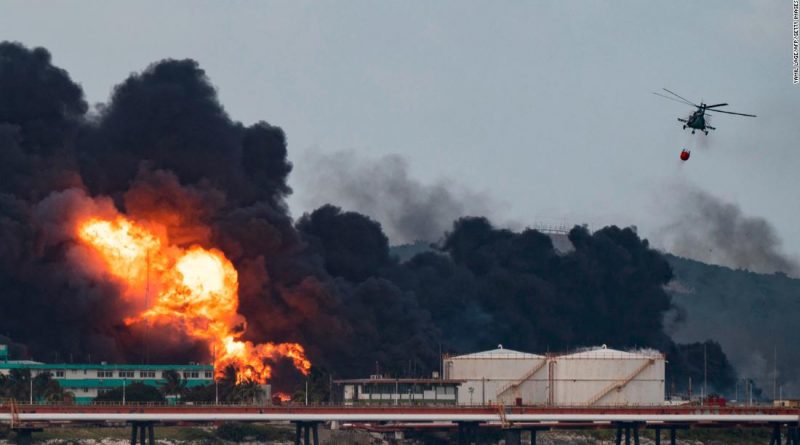Cuba’s worst ever fire brought under control after 5 days, officials say
Reuters witnesses reported the raging flames that ravaged a four-tank segment of the Matanzas super tanker port had died down and the towering plumes of thick black smoke streaming from the area were diminished and now mostly gray.
Lightning struck one fuel storage tank on Friday evening. The fire spread to a second by Sunday and engulfed the four-tank area on Monday, accompanied by huge explosions and despite efforts by local firefighters supported by more than 100 Mexican and Venezuelan reinforcements.
“The situation is going to be more difficult. If the thermoelectric plants are supplied with that oil, we are going to have the whole world affected, it is electricity and it affects everything,” he said.
On Tuesday, more helicopters joined the effort to put out the fire, along with two fireboats sent by Mexico along with heavy firefighting equipment.
“We have not yet been able to access the impact area due to the conditions. There is combustion and so we cannot risk our lives for now,” Perez said around noon.
Later in the day firefighters for the first time were entering the area and spraying foam and water on the still smoldering remains.
“Today we have managed to control the fire,” Rolando Vecino, head of transport for the Ministry of the Interior, said on state-run television from the scene.
Officials have not said how much fuel has been lost in the fire which destroyed all four tanks. Authorities stated that no oil had contaminated the nearby Matanzas Bay. Still they warned residents as far away as Havana to wear face masks and avoid acid rain due to the massive plume of smoke the fire generated.
One firefighter died and 14 went missing on Saturday when the second tank blew up, authorities said on Tuesday, correcting an earlier figure of 16 missing. Five others remain in critical condition.
Mario Sabines, governor of the Matanzas province, about 60 miles (130 km) from Havana, quipped the flames spread like an “Olympic torch” from one tank to the next, turning each into a “caldron.”




